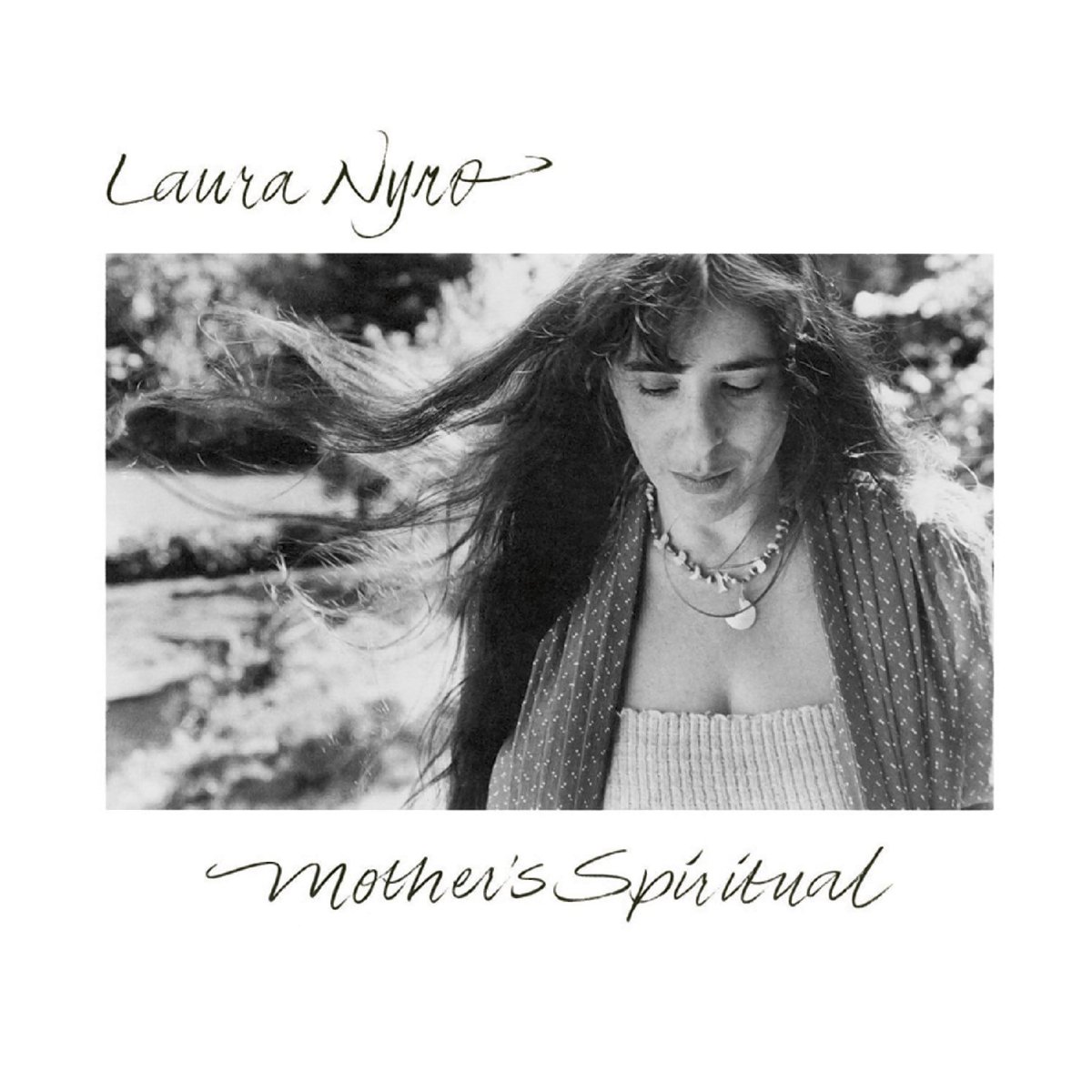
BY KATE WALTER | When I learned that the Village Voice was revamping its music section, I flashed back to 1984 during my struggling music critic days recalling the piece that got away. I’d wanted to review “Mother’s Spiritual,” the new album from the singer-songwriter Laura Nyro. The dark haired, bisexual beauty was my contemporary — and I had a fantasy link.
A Voice review was powerful at that point and I was a one of its few female music writers. Rock and jazz criticism was a male bastion, hard for a chick to break into, but I had good clips and a fine ear. I pitched by phone, delivered pieces on floppy discs, sat next to my renowned editor as he slashed words. I was thrilled to see my byline and rushed out after midnight to buy an early copy from the newsstand.
With assistance from Todd Rundgren, “Mother’s Spiritual” was Nyro’s mature masterpiece. I loved the bouncy melodies and the lyrics about goddesses and sisterhood and saving the planet. She sounded happy and content, in love with another woman — exactly how I felt in my life at the time.
It was a comeback album, after a six-year break from recording to focus on parenting. She’d left her beloved New York City for the trees of Connecticut. The sound was airier, brighter, upbeat. Nyro had dropped the urban angst / love-struck / boy crazy persona of her earlier most-popular LP’s: “Eli and the Thirteenth Confession” and “New York Tendaberry.” How would fans react?
I pitched my editor, Robert Christgau, who wanted to assign the review to a mother because motherhood was the album’s main inspiration. But I was gay. Didn’t that connection count? So Bob assigned it to his sister, also a reviewer. I was disappointed at the nepotism. She wrote a largely negative review, calling the album “politically tame and musically passé,” and made digs at Nyro’s feminist credentials. Nyro felt so misunderstood, she wrote a rebuttal, deeming the review “ornery.”
Had I gotten the assignment, I would have raved about her new disc. My piece could have boosted Nyro’s career — and mine — at a critical juncture. I already knew the basics. She was born Laura Nigro in the Bronx (Jewish mother and Italian father, a musician). A quintessential New Yorker, she went to High School of Music and Art, harmonized in the subway stations, wrote the hit song “And When I Die” when she was only 16. She was deep at a young age and sadly prescient.
My friend’s best friend went to high school with Nyro and hated her quirky voice. I loved it. I also always liked that she didn’t care about being commercial (to the frustration of her managers.)
Nyro’s career peaked when she was in her twenties, although she continued recording and performing to a devoted female fan base. She married, divorced, had a son, and later fell in love with a woman. Nyro was with her female partner, a painter, for two decades, although the songwriter eschewed the lesbian label.
I never married or had a child. But like Nyro, I dated men when I was younger, came out gay and had a long-term relationship with another woman. But unlike Nyro, I was an openly queer writer whose career kept building as I got older. I published my first book in my sixth decade, thankful I lived long enough for that to happen, glad I was not a young success. I have no major writing regrets except for this one assignment I did not land. I’d often thought about this weird twist of fate, how chance affects an artistic career.
After I saw a tweet that Nyro would have been 68 had she lived, this inspired a bingeing marathon: I watched Nyro on You Tube, blown away by her poignant version of “Walk on By.” I ordered CD’s of her seminal albums and her biography, “Soul Picnic: The Music and Passion of Laura Nyro,” by Michele Kort.
I was jealous when I read that Nyro studied with Swami Satchidananda, the founder of Integral Yoga. I’ve been taking classes at Integral Yoga in the Village for the past two decades. She knew him personally and sang at a Carnegie Hall benefit for the institute.
“Mother’s Spiritual” was the only record I’d saved from my vast collection when I moved from St. Mark’s Place 20 years ago. At the time, it was only on vinyl. Since I had no record player, I hadn’t heard it in decades. Now I wanted to hear this album 30 years later. Was it really that great? I looked online. The CD cost $400. Why was “Mother’s Spiritual” the highest-priced CD on Amazon? (Apparently, few copies were cut and it was rare.)
I finally found a used copy for $18. Wow —it totally held up and spoke to me now. I danced around my loft singing: “I don’t need no diamond rings. I got all my pretty things. I’m looking for the highway to my soul.”
For days, her songs kept playing in my head. The album is so alive it seems extra-tragic Nyro passed away before her 50th birthday. She died at 49 from ovarian cancer in 1997.
When I saw an ad for an upcoming concert at the Tribeca Performing Arts Center, “Christine Spero Plays Laura Nyro,” I bought tickets, recalling when I saw Nyro performing at The Bottom Line. It was a religious experience. She sat at the baby grand, sang and played by candlelight (no band) to a hushed, spellbound audience. I wish I had seen her more but I’d gotten into Nyro late. It was an epiphany when I embraced Nyro’s changing sound in the ’80s and then worked my way back through her music.
No way could Spero (a talented jazz singer / pianist) recreate Nyro and wisely she didn’t try. Instead she and her band rendered fresh versions of Nyro’s famous songs, like “Stone Soul Picnic,” “Eli’s Coming” and “Sweet Blindness.” The baby boomer audience sang along.
The tribute concert reinforced my belief that Nyro was very important, one of the great American singer-songwriters of the past century. But recognition came late. In 2012 Nyro was inducted into the Rock & Roll Hall of Fame and her son accepted the award. Nyro’s influence on female artists is huge: Rickie Lee Jones, Joni Mitchell, Carole King, Janis Ian, Suzanne Vega, Phoebe Snow, Sandra Bernhard and Bette Midler all acknowledge their debt. She paved the way for Tori Amos, Tracy Chapman and Sarah McLachlin. Yet Nyro never achieved major fame or superstardom with her songs that were big hits for other artists.
I’m sad there’s no Broadway musical extolling her work and exposing her to a younger audience. Ironically, Nyro’s biggest hit was her cover of King’s “Up on the Roof.” Nyro was a brilliant artist with a loyal cult following but she was reclusive and always made music her way, kinda like how I’ve run my writing life.
Today, listening to “Mother’s Spiritual,” I wonder if her career might have taken off again if only I had gotten that assignment for the Village Voice music section 30 years ago and my review had appeared in print:
“Mother’s Spiritual” is innovative, jazzy rock, soulful, with swooping melodies and gorgeous phrasing. In classic Nyro, her quirky voice hops octaves madly as she works out idiosyncratic piano arrangements. But motherhood mellowed her. She lost the dark, plaintive mood. Now she is singing about goddesses and talking to trees. I can’t stop dancing to her sprightly new sound. I love this album.
Walter is the author of the memoir “Looking for a Kiss: A Chronicle of Downtown Heartbreak and Healing” (Heliotrope Books, 2015).

































